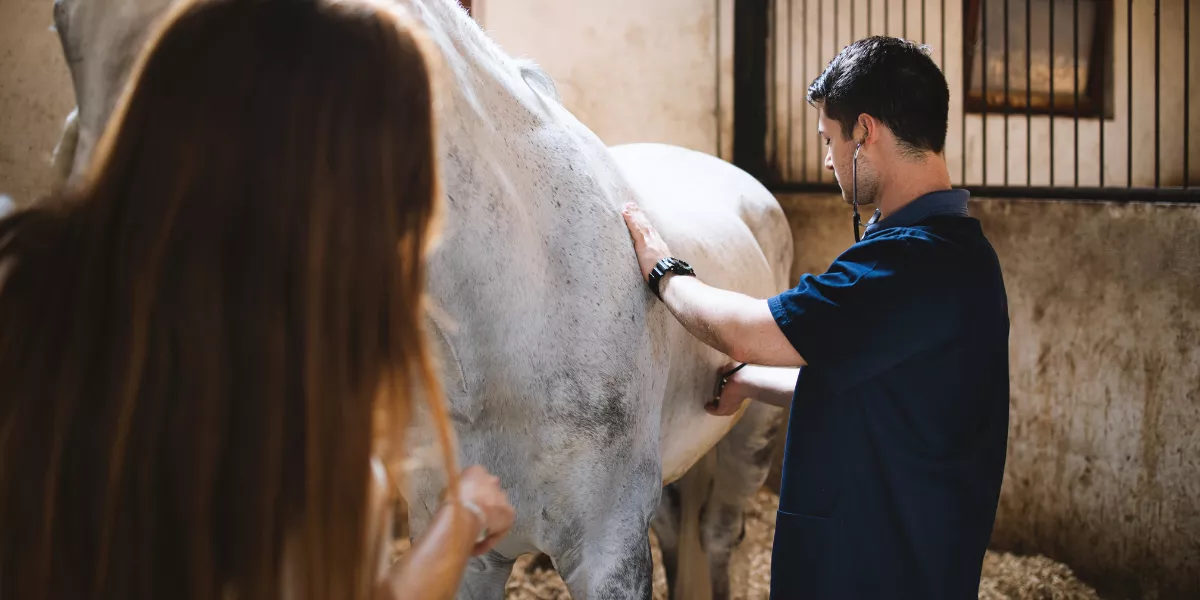
Spot digesting changes, unexpected weight fluctuations, energy drops, behavior shifts, and physical abnormalities to catch health issues early. Ensure vaccinations, a balanced diet, dental check-ups, daily exercise, and grooming to prevent ailments. Prioritize equine health with routine care, exercise, vet visits, and stay updated on vaccinations and social interaction for a content horse. Explore comprehensive tips to safeguard your horse's health further.
Common Health Issues in Horses
Recognizing common health issues in horses can be crucial for prompt treatment and care. Some prevalent issues include colic, lameness, and respiratory problems.
Colic, characterized by abdominal pain, is a leading cause of emergency vet visits in horses. It can range from mild discomfort to severe, life-threatening conditions like twisted intestines.
Lameness, often linked to joint or muscle problems, can impact a horse's performance and overall well-being. Respiratory problems, such as coughing or nasal discharge, may indicate issues like allergies or infections.
Additionally, skin conditions like dermatitis or fungal infections are common in horses and require attention to prevent discomfort and further complications. Proper nutrition, regular exercise, and good stable management can help prevent some of these issues.
Understanding these common health concerns and their signs can empower you to take proactive measures in safeguarding your horse's health and well-being. Remember, early detection and intervention are key in ensuring your horse leads a healthy and happy life.
Recognizing Signs Early
Early detection of signs indicating common health issues in horses is crucial for timely intervention and effective management. As a horse owner, being vigilant and observant of your horse's behavior and physical condition is key to catching any potential health problems early on.
Keep a close eye on your horse's eating habits, as changes in appetite could be an early indicator of issues such as digestive problems or dental issues. Any sudden weight loss or gain should also be noted and investigated promptly.
Monitoring your horse's activity level is important; a decrease in energy or reluctance to exercise could signal pain or discomfort. Changes in behavior such as increased irritability, restlessness, or depression may also indicate underlying health issues that require attention.
Regularly checking for any abnormalities in your horse's physical appearance, such as lumps, swelling, or unusual discharge, can help in detecting issues like infections or tumors. By staying alert to these early signs, you can work with your veterinarian to implement timely interventions and prevent more serious health concerns down the line.
Preventative Care Strategies
To ensure the overall well-being of your horse, implementing effective preventative care strategies is essential. Regular vaccinations are key in preventing diseases such as tetanus, influenza, and West Nile virus. Consult with your veterinarian to create a vaccination schedule tailored to your horse's needs.
Maintaining a balanced diet is crucial for your horse's health. Ensure they have access to fresh water, high-quality forage, and a suitable concentrate feed. Regular dental check-ups are also important to prevent issues like sharp points or uneven wear that can affect your horse's ability to chew properly.
Regular exercise is essential for your horse's physical and mental well-being. Providing daily turnout or exercise can help prevent obesity, improve muscle tone, and promote overall fitness. Keep an eye on your horse's weight and body condition score to ensure they're in good health.
Regular grooming not only keeps your horse looking neat but also allows you to check for any signs of skin issues or injuries. Lastly, maintaining a clean and safe living environment for your horse can help prevent infections and injuries. By following these preventative care strategies, you can help keep your horse healthy and happy.
Promoting Equine Well-being
Now, let's enhance your horse's overall well-being by exploring effective ways to promote equine health. One crucial aspect of promoting your horse's well-being is providing a balanced diet. Ensure your horse has access to high-quality forage, clean water, and a suitable concentrate feed, if needed. Regular exercise is also essential for maintaining your horse's physical and mental health. Engage in activities that suit your horse's fitness level and keep them mentally stimulated.
Regular veterinary check-ups are vital in monitoring your horse's health and catching any potential issues early. Stay up to date with vaccinations, deworming, dental care, and hoof maintenance to prevent health problems. Additionally, maintaining a clean and comfortable living environment for your horse is key to preventing diseases and promoting well-being.
Lastly, don't underestimate the importance of social interactions for your horse. Horses are social animals and benefit from companionship. Whether it's with other horses or through human interaction, providing opportunities for socialization can greatly contribute to your horse's overall happiness and well-being.
Conclusion
In conclusion, by being aware of the signs of common health issues in horses and taking preventative measures, you can help ensure the well-being of your equine companion.
Regular check-ups, proper nutrition, and a safe living environment are key factors in maintaining your horse's health.
Remember, early detection and proactive care are essential in keeping your horse happy and healthy for years to come.




